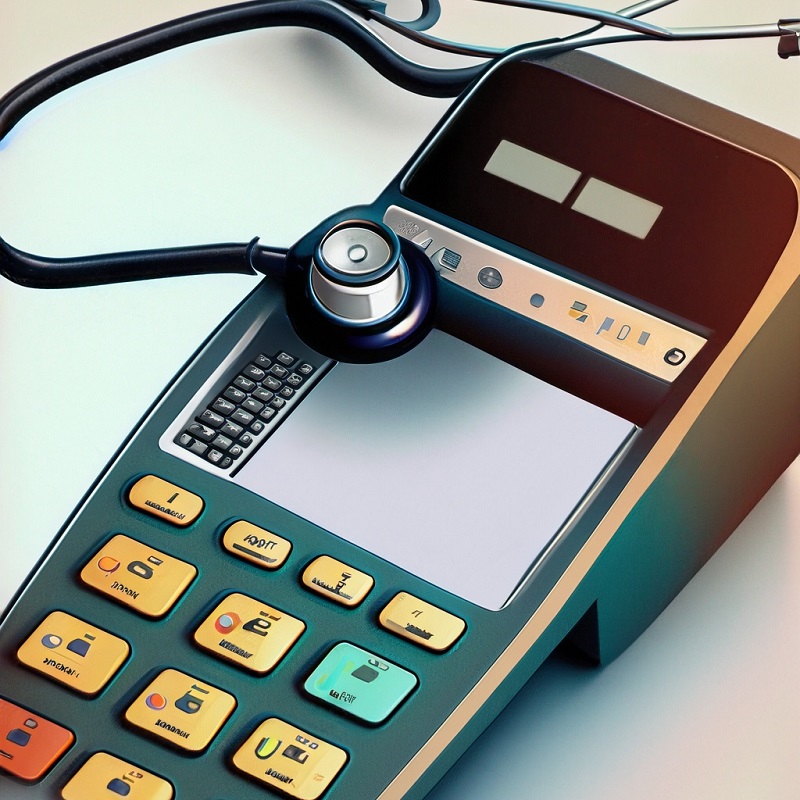
POS for a Doctor's Office
The Point of Sale (POS) terminal and system are integral components of any business, including a doctor’s office. A reliable and efficient POS system ensures seamless transactions, accurate billing, and enhanced patient experience. This article will discuss the top POS terminals and systems suited for a doctor’s office, highlighting their unique features and benefits.
Square for Healthcare offers a specialized POS solution tailored to medical practices. With its simple-to-use interface and robust features, this system streamlines billing, scheduling, and payment processing. Square’s hardware, such as the Square Terminal and Square Register, offers contactless payment options, which are essential in a healthcare setting.
Key Features:
- Customizable interface for appointment scheduling and billing
- Integration with Electronic Health Records (EHR) systems
- Secure and HIPAA-compliant payment processing
- Contactless payment options
Clover Flex for Medical Practices
Clover Flex is a compact and versatile POS system that can adapt to any medical practice. Its portable design makes it easy to use in different rooms, allowing doctors and staff to process payments with ease. Clover Flex also integrates with popular EHR systems, making it an excellent choice for a doctor’s office.
Key Features:
- Portable and flexible design
- EHR system integration
- Secure payment processing with EMV and contactless options
- Robust reporting and analytics tools
Talech offers a comprehensive POS solution specifically designed for healthcare providers. Its intuitive interface simplifies billing and appointment management, while its advanced reporting tools help track revenue, patient visits, and inventory. Talech’s POS terminal, the Poynt Smart Terminal, is an all-in-one device that accepts various payment methods and is HIPAA compliant.
Key Features:
- User-friendly interface for billing and appointment management
- Integration with EHR systems
- Advanced reporting and analytics
- Poynt Smart Terminal with contactless payment options
Lightspeed Medical is a cloud-based POS system designed to cater to the unique needs of healthcare providers. Its features include appointment scheduling, inventory management, and patient billing. The system integrates with EHR platforms, streamlining the patient management process. Lightspeed’s selection of POS terminals is compatible with EMV, NFC, and contactless payment options.
Key Features:
- Cloud-based platform
- EHR system integration
- Appointment scheduling and inventory management
- Secure and contactless payment options
Investing in the right POS terminal and system is crucial for a doctor’s office to ensure smooth operations, accurate billing, and an improved patient experience. Square for Healthcare, Clover Flex for Medical Practices, Talech for Healthcare, and Lightspeed Medical are top contenders in the market that offer specialized features and benefits tailored for healthcare providers. When choosing a POS system, consider your practice’s unique requirements, such as EHR integration, contactless payment options, and ease of use to make an informed decision.
The Distinctive Nature of Payment Processing in a Doctor’s Office
A doctor’s office is a unique environment when it comes to payment processing. Unlike traditional retail establishments, medical practices face a variety of challenges and requirements that directly impact their payment systems. This article explores the distinct aspects of taking payments in a doctor’s office and highlights the essential features that a POS system must have to address these challenges.
Privacy and Security Concerns
One of the primary concerns in a doctor’s office is maintaining the privacy and security of sensitive patient information. Medical practices are required to follow the Health Insurance Portability and Accountability Act (HIPAA) regulations to protect patient data. Therefore, a POS system in a doctor’s office must adhere to these guidelines and provide secure and encrypted payment processing.
Integration with Electronic Health Records (EHR)
In a doctor’s office, payment processing is closely tied to patient management, which includes appointment scheduling and maintaining electronic health records. A POS system for a medical practice must integrate seamlessly with EHR systems to ensure accurate billing and provide a streamlined experience for both the staff and the patients.
Insurance and Co-Payments
Unlike traditional retail settings, doctor’s offices must deal with insurance claims, co-payments, and deductibles. This adds complexity to the payment process and requires a POS system that can handle these intricacies. The ideal POS system should be able to verify insurance information, calculate co-payments and deductibles, and process multiple payment types for a single transaction.
Recurring Payments and Payment Plans
Medical treatments can be expensive, and many patients require ongoing care. As a result, doctor’s offices often offer payment plans or recurring billing options. A suitable POS system should support these features, allowing practices to set up automated billing and provide patients with convenient payment options.
Contactless Payment Options
In a healthcare setting, minimizing the spread of infections is crucial. Contactless payment options, such as tap-to-pay and mobile wallets, help reduce the risk of cross-contamination while ensuring a quick and secure transaction. A modern POS system in a doctor’s office should offer these contactless payment options to enhance patient safety and convenience.
Customization and Flexibility
Doctor’s offices can vary significantly in size, specialty, and workflow. A POS system for a medical practice should be customizable and flexible enough to adapt to the unique needs of each practice. This includes support for various payment types, EHR integrations, and reporting capabilities that cater to different medical specialties.
A doctor’s office presents a unique environment for payment processing, which calls for specialized POS systems that cater to its specific needs. To ensure secure, efficient, and streamlined transactions, medical practices should invest in a POS system that addresses privacy and security concerns, EHR integration, insurance claims processing, recurring payments, contactless payment options, and customization. By selecting a system tailored to the intricacies of a doctor’s office, healthcare providers can enhance patient experience and optimize practice management.
